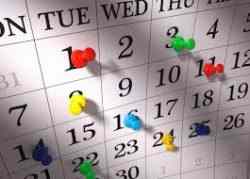What is a Reader?
My name is Samantha Wanner. I’m a Liberal Studies major, and I’m also minoring in Child Development. I come from a small town, and I also hope to teach in one. My plans are to teach either 2nd or 3rd grade.
I can’t say that I know what the definition of a good reader is. I would think that a good reader takes their time to understand and think about what they’re reading. If they don’t understand something, they go back to reread it. They might even read the text once through, and read it a second time to make sure they didn’t miss something.
I liked reading in elementary school. The Harry Potter books were on the top of my list of favorite books. One thing that does stand out to me is the Scholastic Book Fairs. I looked forward to those every year, and I can remember begging my parents to buy me all of the books I wanted. I would circle the books that I wanted, which consisted of half of the selections, and I would usually only end up with one. But I remember that walking through the book fair felt like walking through a gold mine. I was so excited to look at all of the books. As I got a little older, I fell in love with Lois Duncan books and others like them. After elementary school, my reading for pleasure almost disappeared.
Outside of school I read Facebook, Yahoo news, emails, recipes, bills, grocery lists, coupons from magazines, road signs, instruction manuals, labels… The list could really go on. Outside of school, most of what I read is to get me from Point A to Point B, to help me make my dinner; it’s what I choose to read because it’s helping me do something. In school, I read what I’m asked or told to read. It’s not because I wanted to read it. I guess you could say that the reading I do inside of and outside of school is somewhat connected because they’re both expanding my knowledge. I’m always learning something whenever I read, but I don’t read for the same reasons.
In his article, Bronwyn Williams says that being a reader goes beyond the ability of simply being able to recognize letters and words. People may not define themselves as readers, but we all read every day. So when teachers mention they have students who aren’t “readers,” they must be talking about something else. They’re talking about being able to decode the text, question the text, analyze the text. When they read they’re focused; they take on a different identity. This is what teachers think of readers, but other people might think differently. Being a “reader” is sometimes seen as a negative, and it can isolate people. It isn’t considered to be a popular social norm. Williams suggests that we remind students that they are all readers, and they’re doing it when they don’t even realize it. We are all readers.
I agree with Williams. I hadn’t thought about this until last semester in another English class, but it’s so true. I didn’t realize how much I was reading without even recognizing it. It’s almost impossible to avoid. I also think it’s important to remind students that they are all readers. It eliminates isolation and unites us all as readers.

